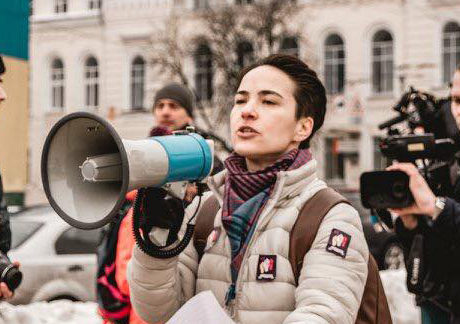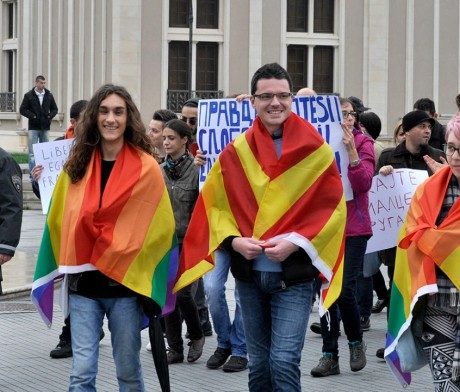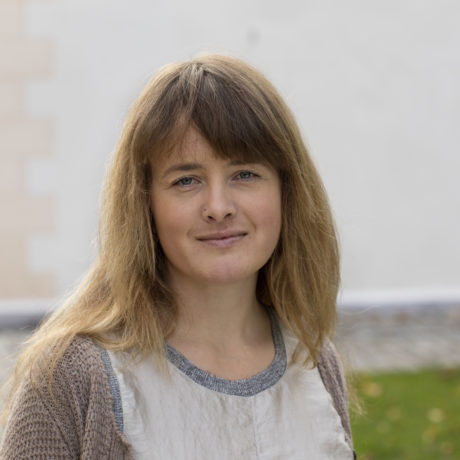The Velvet Revolution in Armenia, the Maidan Revolution in Ukraine and the Colourful Revolution in Macedonia had one success formula in common: Lesbian, gay, bisexual, and trans and intersex (LGBTI) activists mobilized with other rights groups and managed to push for historic changes. Minorities also lead the way to significant political and social changes in countries like Norway.
A new narrative
Still, the most well-known narrative of LGBTI movement are colorful Pride parades to promote self-recognition, diversity and to make a stance against discrimination and violence against themselves. LGBTIs contributions in fighting injustice for all is often forgotten.
The Norwegian Helsinki Committee (NHC) works closely with LGBTI groups in numerous countries because they are crucial in order to strengthen civil societies and democracies.
“LGBTI activists don’t get enough credit for contributing to democratic revolutions and reforms towards more healthy democracies. It is time to acknowledge their influence in the human rights movements as a whole”, says Mina Skouen, Senior Advisor at the NHC.
We have looked behind the scene of several national revolutions and other major steps toward democracy the past few years. The LGBTI movement has been instrumental in historic changes – sometimes in the open, other times more discreetly.

Armenia: The velvet revolution
Peaceful mass protests in April led to the ousting of the old, corrupt regime. It is called the Velvet Revolution because people won an unprecedented victory for democracy without a bullet fired. The protest marked a historic turning point for a group of minorities.
“LGBTI activists were among the most active protesters. The society started understanding that we are patriots too, fighting for justice for all”, says the Armenian LGBTI activist Arman Sahakyan.
LGBTI persons in Armenia face widespread prejudice, bullying and discrimination. In this context, it took a lot of guts for individuals to get involved and get loud during the revolution.
LGBTI activists were among the most active protesters. The society started understanding that we are patriots too, fighting for justice for all.Arman Sahakyan
Fearless
“Our community has become more fearless. Trans persons demonstrated and spent sleepless nights in the streets with the other protestors. A friendly atmosphere was formed everywhere for one purpose: to end the corrupt regime and to build a new Armenia.”
The revolution is still not over. Pro-Russian opponents of the new Government claims that the USA and EU bring “perverts” to Armenia in order to destroy the traditional families and the country. LGBTI issues are still highly controversial, and it is now up to the new cabinet as well as the human rights movement in Armenia to change the agenda.
Not accepted
“We are doing our best in order to be an integrated part of the human rights movement. This is hard because many human rights defenders in Armenia still don’t accept our rights as human rights.”
International human rights organizations support the formation of civil society and democracy in Armenia.
“We are grateful for the support. The Norwegian Helsinki Committee has an important role in promoting equality and democracy in Armenia”, says Arman Sahakyan.

Ukraine: The Maidan revolution
Intense protests and brutal response from riot police led to the ousting of the president and to a series of changes towards democracy in 2014. Among the protesters were many LGBTI activists, but they were not visible as a group or movement.
“It wasn’t safe for us to be open on LGBTI issues due to aggression from ultra-right groups at that time”, says Olena Shevchenko. The lesbian feminist activist and executive director of the NGO called Insight was on the barricades in Kiev during the historic uprising.
More visible
“We don’t expect credits for overthrowing the old regime. But yes, it’s hard sometimes to fight together with other human rights activists and NGOs, who always think you are manifesting your sexual orientation or gender identity”, she says.
Today, four years later, the situation has improved substantially. The LGBTI movement is more visible in the process of democratic reforms. Even big human rights organization, who previously demonstrated homophobic views have taken the LGBTI agenda on board, according to Shevchenko.
It’s hard to fight together with other human rights activists and NGOs, who always think you are manifesting your sexual orientation or gender identity”
Olena Shevchenko
“I often hear that the society is not ready to accept LGBTI people yet, so let’s start with less controversial issues. I believe the society will never be “ready”. That is why we are not waiting but taking an active part in building a strong civil society here and now.”
Backclash
After the euphoric celebration of the 2014 revolution, Ukraine is experiencing backlashes in democratic values and civil rights in 2018.
“The biggest threat is corruption and conservatism. We see how the ultra-rights become heroes in Ukraine and how the Church influences decisions from the Government and the Parliament. It’s not safe anymore to arrange protests or even discuss feminism or LGBTI issues”, she says.

Macedonia: The Colorful revolution
Demonstrators in Macedonia covered famous monuments and buildings with paint in protest at political turmoil in 2016. Massive protests against corruption and a wiretapping scandal had one year earlier. The good news is that Macedonia’s Democracy Score in 2018 has improved.
“LGBTI activists were an integral part of the “Colourful revolution” against the oppressing, criminal and inhumane practices and policies by the former ruling coalition”, says Antonio Mihajlov, a prominent LGBTI activist in Macedonia.
Frontline
Sexual and gender minorities are still in the frontline of major demonstrations – together with students, workers and other groups. A positive trend is more and more youth activists are ready to be visible.
LGBTI activists were an integral part of the Colourful revolution.
Antonio Mihajlov
“This is an inspiring step forward. LGBTI activists are often even more brave and willing than other rights groups to create alliances of solidarity, support and progress among the different oppressed groups in society”. Antonio Mihajlov says they still have lot to fight for in Macedonia:
Valuable support
“The biggest threat today is the deterioration of LGBTI rights. Organisations such as the NHC must be at the forefront on speaking up against injustice and oppression, not only in Macedonia but everywhere across the globe.”
The NHC recently visited Macedonia and met a group of parliamentarians working to advance LGBTI rights. The aim is to find ways to work together to raise awareness and strengthen cooperation for minorities.

Norway: Unfinished business
The LGBTI organizations in liberal Norway are strong, visible and an integrated part of the human rights movement. And it is very much needed, as the situation is still alarming for some vulnerable groups.
“We have to talk more about the difficulties faced by LGBTI asylum seekers in Norway. Some of them are being sent back to countries where Norwegians are advised against even visiting. We have seen cases that were rejected because case-workers claim they do not appear gay enough”, says Senior Advisor Mina Skouen at the NHC.
Important step
“However, many LGBTI persons do receive asylum, which is an important step in the right direction. It is important that the case workers understand that a person is not persecuted for being gay in a specific way, but for belonging to a minority.”
We have to talk more about the difficulties faced by LGBTI asylum seekers in Norway
Mina Skouen
Skouen highlights transgender and intersex persons as groups vulnerable to discrimination in Norway:
“One of many examples is how Rikshospitalet, which is the Norwegian hospital offering gender affirmative procedures, stated recently that they would not offer services to persons who have started treatment with private practitioners. This is denying them a publicly available health service and a violation of fundamental rights, safety and wellbeing”
Several decades of LGBTI activism in Norway has, however, resulted in the rights of sexual and gender minorities being stronger in Norway than in most other countries.
Village Pride
“Look to the town of Ørsta and Volda! Recently more than 2000 people marched in the streets celebrating diversity in the countryside at Bygdepride (“Village pride”). They were standing together and showing that the fight for democratic values and against homophobia and transphobia is not only happening in the big cities.”
An important symbolic victory for equality happened when the church opened the door for same-sex couples to get married.
“A new liturgy recognizing that our love is as valuable as heterosexual love was finally established in 2017”, says Mina Skouen, who will get married to her girlfriend in church in August.



